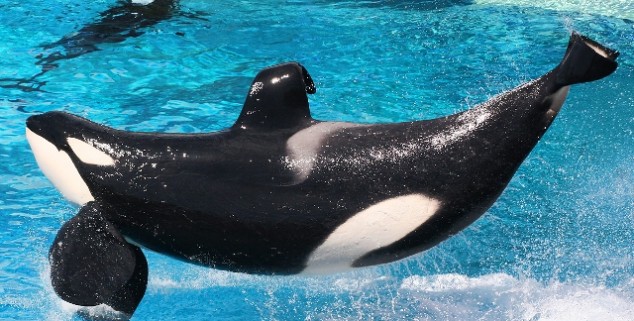Opinion
Captive orcas: Proposed ban is ill-advised, anti-science
 Orcas perform at SeaWorld in San Diego. Photo: Cunimedia Photography
Orcas perform at SeaWorld in San Diego. Photo: Cunimedia PhotographyOPINION: Have you ever enjoyed a family day at a marine life park, marveling at the killer whales and dolphin shows and making memories with your children? How about an aquarium, zoo or wildlife park?
If so, some members of the California Legislature aim to all but put an end to that.
At the urging of animal rights activists, Assemblyman Richard Bloom (D-Santa Monica) has introduced a bill to essentially ban captive orcas in California. According to Assemblyman Bloom, “the public has begun to question the moral justification of keeping orcas in captivity for our general entertainment.”
His bill, AB 2401 would prohibit the use of orcas in performance and entertainment shows, such as those which form the core of SeaWorld’s unique attraction. For decades these performances have delighted, entertained and educated millions and enabled SeaWorld to found far-reaching programs that benefit San Diego and the state of California.
More than 9 million students and teachers have participated in SeaWorld’s formal education programs. SeaWorld scientists have published more than 30 studies specific to killer whales, and the park’s successful care and husbandry of its population of killer whales – supported by a three-year, $70-million investment in their habitat – allows them to manage a healthy population of animals, while keeping young calves with their mothers and respecting the whales’ social structure. AB 2401 would prohibit these programs by banning reproduction in captivity and the interaction essential for scientific study.
No one can argue that the physical, social, and behavioral needs of each animal in captivity are a sacred obligation. However, the proposed legislation is based upon emotion and conjecture, not scientific fact. AB 2401 also seeks to remove orcas from park captivity and place them in “sea pens” anchored offshore. Such pens do not exist and are fanciful at best. These are not wild whales and could not survive in the open sea.
SeaWorld adheres to the highest standards for animal care and welfare. In addition to abiding by federal laws governing the care and housing of killer whales, accredited parks such as SeaWorld must already uphold the strict requirements of the nonprofit Association of Zoos and Aquariums’ (AZA) accreditation process. AZA makes sure zoos and aquariums meet high standards for animal management and care, including living environments, social groupings, health, and nutrition.
The bill threatens the viability of SeaWorld to market their attractions while providing no tangible benefit to the whales, SeaWorld or the community. It will, however, affect tourism in San Diego and Southern California. More than 30 million people visit Southern California’s theme and amusement parks, many attracted by the variety of entertainment and experienced offered. SeaWorld offers a unique mix of education, contact with animals and traditional park attractions.
In San Diego alone tourism is the second largest trade economy with an economic impact of more than $18 billion. More than 160,000 jobs support the city’s hospitality industry. SeaWorld is a pillar of the region’s tourism economy, drawing millions of visitors from around the world. The park appeals to guests, who stay at hotels, dine out at local restaurants and visit other attractions further boosting the economic impact to the community and region. Without its majestic killer whales, fewer tourists may decide to visit.
These visits benefit the entire area economy, but also enable SeaWorld to expand its environmental, educational and animal rescue programs. These most likely go away with the whales.
Furthermore, what comes after orcas? The radical animal rights organization PETA has already indicated its desire that the bill will set a precedent to be applied to other zoos and aquariums. Shall we establish bans on all aquariums, zoos, petting farms, even domesticated pets?
Orcas generate great passion and press coverage for activists and politicians, and in this case ill-advised legislation.
—
Ed’s Note: John Robinson is CEO and President of the California Attractions and Parks Association and former Director of Public Affairs for the Monterey Bay National Marine Sanctuary.
Want to see more stories like this? Sign up for The Roundup, the free daily newsletter about California politics from the editors of Capitol Weekly. Stay up to date on the news you need to know.
Sign up below, then look for a confirmation email in your inbox.

The bill number is incorrect. It should be AB 2140, not AB 2401.